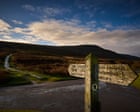She’s been called a neo-fascist and a danger to Italy. But she has won over many heads of Europe, including the UK prime minister. Should we be worried?
In mid-June, Giorgia Meloni was in an exultant mood while hosting the G7 summit, a gathering of the world’s most powerful nations, in the southern Italian region of Apulia. After days in which she presided over meetings speaking English, French and Spanish along with her native Italian, one evening she danced the pizzica – a traditional Apulian dance – twirling and hopping to the trance-like rhythmic folk music often played at local weddings at a contagious 100 beats per minute. Meloni’s uninhibited performance expressed the self-confidence of an emerging political star, who, after a strong showing in the European elections just a few days earlier, was the hottest political leader in Europe. She took a selfie with Indian strongman Narendra Modi, which she posted on Instagram to her 3.5 million followers with the caption “Hello from the MELODI team.” For a politician who only a few years ago was stuck at the margins of Italian politics as the head of a small rightwing party, Brothers of Italy, Meloni, at 47, appeared to be on top of the world.
Meloni has worked hard to achieve the respectability that has eluded other rightwing parties such as Marine Le Pen’s National Rally. She was received at the White House by Joe Biden and has been accepted by centrist parties within the EU. This is all the more surprising given the openly neo-fascist origins of her career. (Just before she was elected prime minister in late 2022, author Roberto Saviano wrote in the Guardian: “Giorgia Meloni is a danger to Italy and the rest of Europe.”) But in two years, she has surprised many people by her political pragmatism and shrewd ability.



















